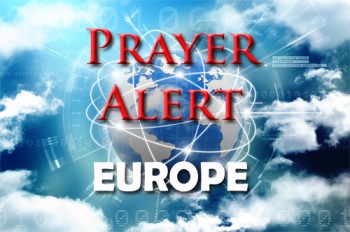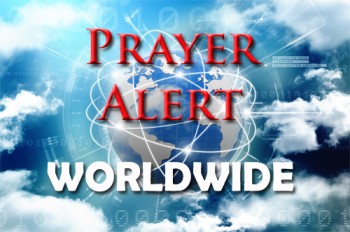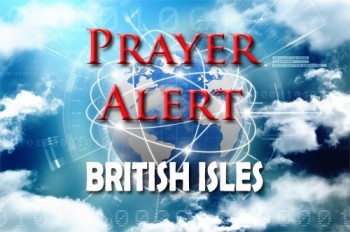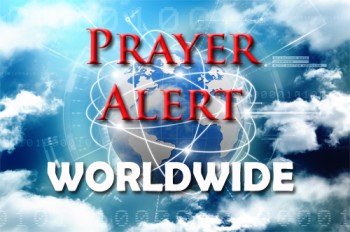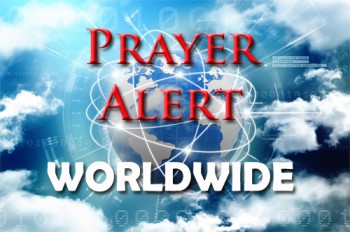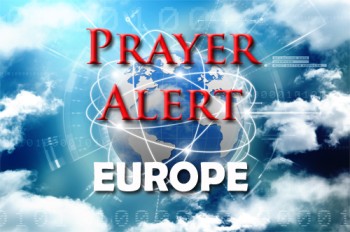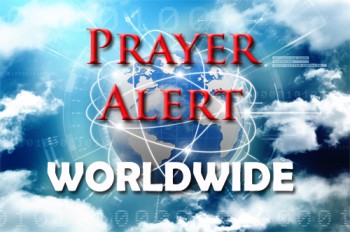
Displaying items by tag: USA
Greenland: talks in Washington and Denmark, US senators seek to block Trump’s plans
US senators have introduced bipartisan legislation aimed at safeguarding NATO unity amid rising tensions over Greenland. The bill would prevent US government funds from being used to seize, occupy or otherwise assert control over the territory of any NATO member state. This is a response to repeated statements by Donald Trump suggesting that Greenland, a self-governing territory of Denmark, should come under US control, even by force. Many believe that such rhetoric threatens NATO’s core principle of collective defence and undermines trust among allies. European leaders, particularly in Denmark and Greenland, have firmly rejected any suggestion of US control, emphasising their commitment to NATO, Danish sovereignty and the EU. On 16 January, with the territory’s strategic location and natural resources drawing global attention, Marco Rubio is due to meet the foreign ministers of Denmark and Greenland in Washington, and a bipartisan group of US lawmakers will be in Denmark for talks. Breaking news: some European troops have gone to Greenland after inconclusive talks with the USA. See
Iran: Trump steps back from threats of military action over protests
Donald Trump has stepped back, at least temporarily, from threats of US military action against Iran, saying he has been assured that the killing of protesters has stopped and that no executions are planned. He said these assurances came from ‘very important sources on the other side’, though the claims have not been independently verified. Despite reports that over 3,400 have been killed during the recent anti-government protests and fears of imminent executions, Trump said he was unconvinced that military action would bring decisive change. He had been strenuously lobbied by leaders in the Middle East to not to go ahead with strikes which would be certain to lead to an Iranian counterstrike on US bases. Iranian officials have publicly denied plans for executions, and at least one expected execution has been postponed. While rhetoric has softened slightly, deep divisions over human rights abuses and Iran’s nuclear ambitions persist, leaving the situation fragile and unresolved.
Ole Miss quarterback gives glory to Jesus
Mississippi quarterback Trinidad Chambliss has captured national attention not only for his remarkable rise in college football, but for his bold and consistent Christian witness. After leading Ole Miss to a dramatic comeback victory over Georgia in the Sugar Bowl quarterfinal, Chambliss immediately gave glory to Jesus during a live ESPN interview, declaring his gratitude to Christ for sustaining him through every high and low. The win followed a standout performance in which Chambliss threw passes for 362 yards and two touchdowns. His faith has remained central throughout the season, especially after stepping in as starting quarterback following injury to a teammate. He regularly credits Jesus for giving him peace amid pressure, openly sharing his testimony with media and fans alike. Raised in a faith-centred family, his name, meaning 'Trinity’, reflects his parents’ commitment to Christ. Chambliss continues to trust God fully, offering a powerful example of humility, courage, and public faith.
UK armed forces helped US seizure of tanker
The UK armed forces have confirmed they supported a US-led operation to seize a Russian-flagged oil tanker in the North Atlantic, amid growing concerns over so-called 'shadow fleets' evading international sanctions. The tanker, Marinera, was intercepted while sailing between Iceland and Scotland after US authorities obtained a legal warrant to seize it. At Washington’s request, the UK provided surveillance support through RAF aircraft and a Royal Navy support vessel. Defence secretary John Healey said the action fully complied with international law and formed part of stepped-up efforts to counter malign activity at sea. The tanker is accused of transporting oil on behalf of Iran, Russia and Venezuela, with proceeds allegedly financing terrorism and contributing to Russia’s war in Ukraine. Moscow has condemned the seizure, while the US praised UK cooperation.
USA: ICE agent kills woman observer
Community tensions in Minneapolis have sharply intensified following a fatal shooting by a US immigration agent amid a major surge in enforcement activity. A 37-year-old US citizen, Renee Nicole Good, was shot and killed during an ICE operation, despite video suggesting she was driving away. Federal authorities claimed she was interfering with law enforcement, a statement strongly disputed by witnesses. The incident comes as hundreds of additional immigration officers have been deployed under the Trump administration, particularly targeting immigrant-heavy neighbourhoods. Advocacy groups report widespread fear, reduced work attendance, and growing economic strain as families avoid leaving their homes. Community networks have mobilised rapidly, training observers, tracking ICE vehicles, and providing legal and practical support to those affected. Local officials have condemned the operation, warning that aggressive enforcement is tearing communities apart and escalating violence. Residents now fear the surge represents a new and dangerous normal for the city.
Equatorial Guinea: US payment to accept deportees sharply criticised
The US government has made a $7.5 million payment to the government of Equatorial Guinea as it seeks agreements to deport migrants to third countries, prompting sharp criticism from a top Democratic senator. Jeanne Shaheen said the payment, drawn from a migration and refugee assistance fund, raises serious concerns about transparency and proper use of taxpayer money; it far exceeds all US aid given to the country in the past eight years. She questioned whether funds intended for humanitarian crises should be transferred directly to one of the world’s most corrupt governments. The State Department defended the move as part of implementing the Trump administration’s immigration priorities. The payment raises questions about how the government is enmeshing its deportation agenda with other foreign policy goals, as well as the international leaders it is willing to trust. Immigration advocacy groups have called the policy a reckless tactic which violates due process rights and can strand deportees in countries with long histories of human rights violations and corruption.
Turning Point USA now in over 500 Texas high schools
Texas governor Greg Abbott has announced that over 500 high schools across the state now host chapters of Turning Point USA’s Club America programme, a conservative student movement designed to promote constitutional principles, traditional values, and civic responsibility among young people. At a press conference, he highlighted the growing need for such programmes in shaping future leaders. He honoured the legacy of Charlie Kirk, TPUSA’s founder, who was assassinated last September, recognising his impact in inspiring students to stand for moral clarity and America’s founding ideals. Club America now includes more than 1,200 chapters nationwide, teaching principles such as fiscal responsibility, free markets, and limited government. Several other states, including Florida and Oklahoma, have pledged support for students wishing to establish their own chapters.
Responses to Trump’s criticisms of ‘weak, decaying’ Europe
Donald Trump has intensified his criticism of Europe, portraying the continent as weak’, ‘decaying’, and threatened by immigration. Using inflammatory language, he echoed ‘great replacement’ conspiracy themes, claiming that European countries risk becoming non-viable due to immigration. He insisted European cities such as London and Paris have fundamentally altered, and once again made a personal attack on London’s mayor Sadiq Khan. His remarks followed the recent release of a new US national security strategy warning of Europe’s supposed ‘civilisational erasure’ and signalling support for nationalist parties. European leaders reacted with dismay: Germany’s chancellor Friedrich Merz rejected the idea that Europe needs saving, calling parts of the strategy unacceptable. Pope Leo XIV also cautioned that the shift in US policy risks damaging the long-standing transatlantic alliance, and European Council president António Costa warned Trump not to interfere in Europe’s affairs (see).
Minneapolis: pepper spray used on protesters against crackdown on Somalis
A confrontation between federal agents and residents in a Somali neighbourhood of Minneapolis has heightened fear and tension within the community. Witnesses reported that ICE agents used pepper spray to disperse a crowd of protesters after checking identifications in restaurants, on the streets, and at a senior housing complex. The crackdown follows the decision by Donald Trump to end temporary protected status for Somalis, calling them ‘garbage’ and saying he does not want them in the country. The move has drawn denunciations from leaders of the Somali community and governor Tim Walz. About 84,000 of the 260,000 Somalis in the country live in the Minneapolis-St Paul area, the overwhelming majority of them US citizens. Over half were born in the U.S., and 87 per cent of those born elsewhere are naturalised citizens. Federal officials justify the operation as targeting criminals, giving details of nine criminals who have been arrested recently, but local leaders argue that such actions unfairly stigmatise an entire community.
Two atheists come to faith after watching ‘The Chosen’
Actor Jonathan Roumie, who portrays Jesus in the hit series ‘The Chosen’, says the show’s heartfelt depiction of Christ has led even lifelong atheists to embrace Christianity. He said that two men who had never believed in God were sent the series by friends. Unexpectedly, they were captivated by the first episode, began reading Scripture and attending church, and ultimately converted. He called their transformation remarkable, noting that many viewers express similar experiences. Roumie said his own deep relationship with Christ shaped the sincerity of his performance, helping him convey love, compassion, and authenticity. He also described the emotional and spiritual weight of filming Season 6 (to be released in 2026), which depicts Jesus’ crucifixion; he prayed for insight into Christ’s suffering and sensed God responding.

